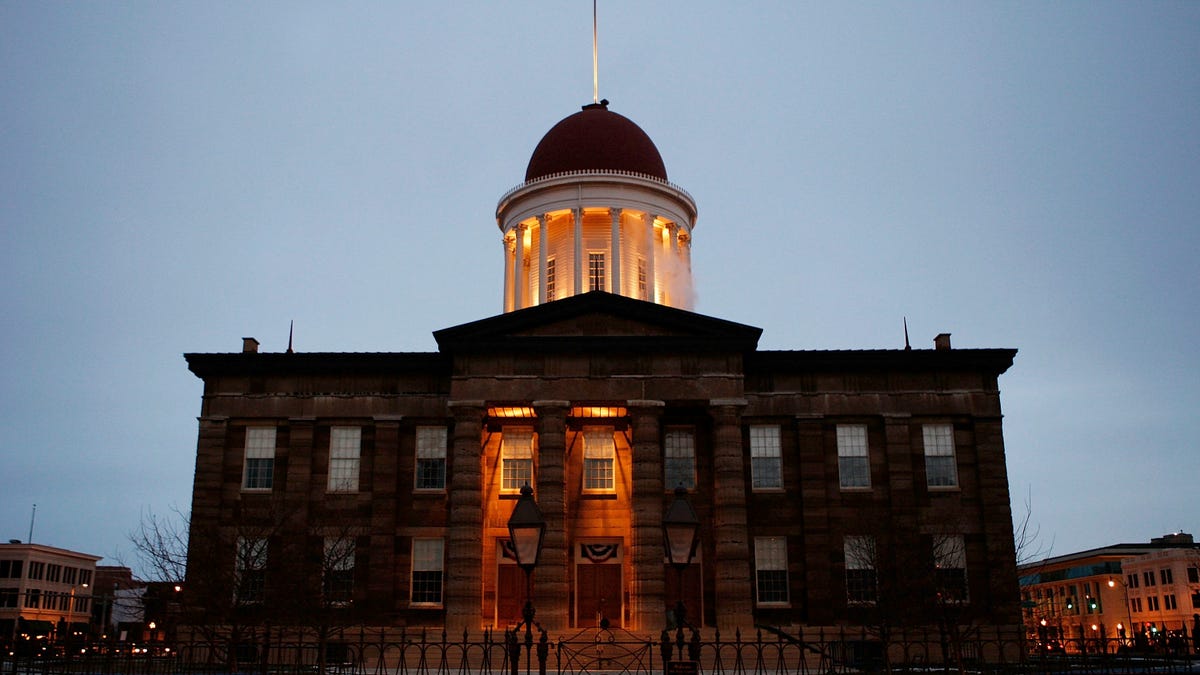
SPRINGFIELD, IL - FEBRUARY 09: The historic Illinois State Capitol building is seen February 9, 2007 in Springfield, Illinois. Sen. Barrack Obama (D-IL) has scheduled a rally February 10 at the Capitol building and is expected to announce that he will run for president in 2008. (Photo by Mark Wilson/Getty Images) (Getty Images)
A bipartisan committee of lawmakers signed off Monday on an estimated $160 billion plan to deal with the state's underfunded public pension crisis, sending the measure to the Illinois House and Senate for consideration.
The Associated Press confirmed with seven members of the 10-member panel that they had signed the measure Monday after arriving in Springfield for a special session. The seven included four Democrats and three Republicans.
The plan, announced last week by the top legislative leaders, was a significant breakthrough after more than five months of intense work and years of calls to fix what is considered the nation's worst public pension shortfall. The full House and Senate are expected to take up the measure on Tuesday.
"I'm pleased the compromise has receieved such broad support," said Rep. Elaine Nekritz, a Northbrook Democrat and one of the seven to sign the measure. The others were: Rep. Darlene Senger, R-Naperville; Rep. Mike Zalewski, D-Riverside; Rep. Art Turner, D-Chicago; Sen. Bill Brady, R-Bloomington; Sen. Matt Murphy, R-Palatine; and Sen. Daniel Biss, D-Evanston.
Illinois' public employee unions fiercely oppose the deal and have vowed to quickly sue if it passes both chambers.
Passage of the measure is uncertain, particularly in the state Senate, where a handful of Democratic senators from moderate districts could be hammered by opponents for either inaction on pension reform or for being too tough on state employees.
The savings proposal, which aims to close the enormous shortfall in the state's five pension systems by 2044, was filed as legislation Monday.
To accomplish the goal, the retirement age for workers age 45 and under would be pushed back on a sliding scale. Automatic, annually compounded 3 percent cost-of-living increases for retirees -- considered to be the biggest driver of pension costs -- would be replaced with smaller annual adjustments for the highest earners. Some workers would have the option of freezing their pension and starting a 401(k)-style defined contribution plan.
The pension shortfall developed after lawmakers short-changed state retirement systems for years. The gap has led to millions of dollars being diverted from education and social programs and repeated drops in the state's important credit rating.
Lawmakers reached an impasse on competing plans at the end of the spring session, and the 10-member conference committee was formed to reach a compromise.
Gov. Pat Quinn has made pension reform one of the main issues in his re-election bid, and even tried to halt lawmakers' pay until the issue was resolved-- a move a Cook County judge found unconstitutional earlier this summer. His spokeswoman, Brooke Anderson, said the governor has spent recent days contacting members in both chambers to support the proposal.




